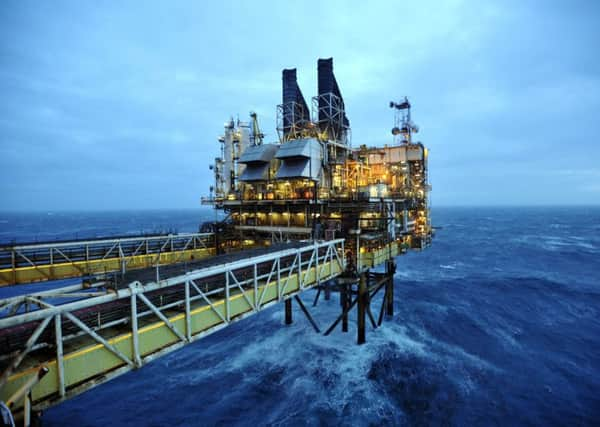BP to spend £670m on boosting North Sea assets


The move comes as a welcome boost for the industry, which has been hit by a succession of job losses and announcements of project cutbacks in recent months because of the fall in oil prices.
BP, which itself announced some 300 job losses at the start of this year, said it hoped the new investment would secure its Eastern Trough Area Project (Etap) fields until at least 2030.
Advertisement
Hide AdAdvertisement
Hide AdRegional president Trevor Garlick said that although the sector was facing challenges, the company remained committed to improving competitiveness.
He said: “These are challenging times for the industry and we are having to make hard choices.
“Nonetheless, we remain committed to improving the competitiveness of the North Sea and to maximising economic recovery from our fields.”
Mr Garlick said BP’s main areas of focus for the spending would be to the west of Shetland and the central North Sea, where it is investing in new developments and extending the life of existing ones.
Etap is made up of nine fields, six of which are operated by BP and the other three by Royal Dutch Shell.
Production from these fields currently stands at up to 120,000 barrels per day.
Deirdre Michie, chief executive of industry body Oil & Gas UK, said: “It is encouraging to see the continuing investment BP is making in its North Sea assets and projects to deliver a secure indigenous supply of energy for the country.
“Given the harsh business environment upstream oil and gas companies currently face, the industry as a whole is putting a great deal of effort into improving the performance of its assets.”
Advertisement
Hide AdAdvertisement
Hide AdMs Michie said that, according to the latest figures, the UK’s demand for oil and gas was set to remain unchanged until 2030 at least.
Earlier this month, the industry body said production from the North Sea was expected to increase for the first time in more than 15 years, despite the slump in the price of crude.
Output from the UK Continental Shelf over the first six months of this year could be 2.5 per cent higher than the same period last year.
Although production has remained stable, the North Sea’s relatively high operating costs means it has been hit hard by the fall in oil prices, with many operators cutting jobs or wages.
Last month, French energy giant Technip, one of the North Sea’s biggest employers, announced plans to cut 6,000 jobs from its global workforce as part of a plan to slash costs by almost £600m in the face of the oil price fall.
Although Technip gave no specific figures for job losses in particular markets, the North Sea – where it employs about 1,000 staff out of Aberdeen – is one of those expected to bear the brunt of the cuts.